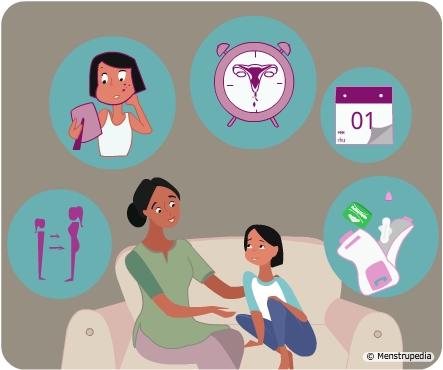Menstrual health isn’t just a “women’s issue, “it’s a public health issue that affects everyone. A woman’s health shapes the health of families, communities, and ultimately, the nation. On May 28, the world observed Menstrual Health Day, a vital shift from the old term “Menstrual Hygiene Day.” This change signals that periods aren’t just about cleanliness, they’re about health, fertility, and long-term reproductive well-being.
The silence and shame surrounding menstruation must end. Menstrual health is a key indicator of a woman’s overall health, including her ability to conceive, carry a pregnancy, and thrive across all stages of life.
When we prioritise menstrual health, we’re investing in the well-being of future generations. That’s why everyone, regardless of gender , needs to be part of the conversation.
Regular, healthy periods are more than just a monthly occurrence, they’re a sign of balanced hormones and a well-functioning reproductive system, essential for ovulation and the ability to conceive (NHS).
But for many girls, even managing their periods is a struggle. Period poverty begins the moment a girl can’t access basic menstrual products. When a young girl misses school or work simply because she can’t afford a sanitary pad, her health, education, and dignity are all at stake.
This is not a distant issue, it’s happening close to home. There are girls in our own communities who feel ashamed, isolated, or less confident during their periods, simply because they lack what should be basic essentials. Menstrual health is not a luxury; it’s a right. Ensuring that every girl has access to the products, education, and support she needs is not charity, it’s justice.
There has been an ongoing conversation between the government and stakeholders about ending this period-poverty and lending a mouth to the silence hovering around menstrual health.
“It is unacceptable that menstruation continues to limit the potential of millions of girls and women in Nigeria. No one should miss school, feel ashamed, or be unsafe simply because they are menstruating. A period-friendly world is one where dignity, access, and rights are protected for everyone, regardless of age, location, or income.” Evelyn Mere. To combat period poverty, individuals can raise awareness, starting from where they are. Start a period bank by donating products, supporting organizations working on these issues, advocating for policy changes that support empathy towards period health, and making products more accessible in schools and public spaces. This is how we can contribute as a nation to this health situation.
Awareness: Talking openly breaks the stigma and secrecy surrounding periods. This awareness goes a long way when men are also involved and doing the talking. Having my dad involved with my period hygiene was one of the best times of my life as a young girl. I stand today as an advocate and can speak freely about period health; it has also greatly impacted my confidence as a young woman. When the silence is broken, the shame goes away.
Supporting Initiatives: Stakeholders are going out of their way to create a safe period scheme. There is a lot we can do to support them, including joining in these conversations, sharing our experiences, supporting them financially, breaking rural myths around periods, and, by doing so, taking period poverty to its death.
Create Period Bank: We can all take the step of creating period banks in whatever community or group we find ourselves in. For every period a bank is created, period poverty ends. Every great move starts with a step, and every step we take to this effect creates a deeply felt reverberation.
So, for this year, the theme “Together for a Period-Friendly World” will stand by the impact we all have to make: Together, we can break the secrecy.
It is time to lift the veil on menstrual health and see it for what it truly is, a pillar of national development. When girls and women are hindered by something as natural as menstruation, society does not just lose productivity; it loses potential, confidence, education, and equality. The shame and silence around periods do more damage than any physical discomfort ever could.
It keeps girls away from classrooms, women away from work, and entire communities bound in ignorance and stigma.
Ending period poverty is not a matter of charity; it is a matter of justice. Every girl deserves the dignity of proper menstrual care, and every woman has the right to manage her health without shame or silence. The call to action is clear: normalize conversations around menstruation, involve men in these discussions, support policies that make menstrual products accessible, and take grassroots action by starting period banks in your communities.
This year’s Menstrual Health Day theme, “Together for a Period-Friendly World,” is not just a slogan; it’s a mandate. A period-friendly world is a healthier, more equitable world. When we care for women’s health, we care for our families, our communities, and the future of our nation.
So, let us all get on board. Let us lend our voices, resources, and compassion to this cause. Because when we stand together for menstrual health, we stand for dignity, education, equality, and the entire nation’s health.
Now is the time to act. The ripple effect begins with you.





